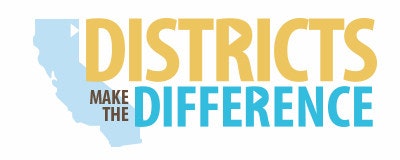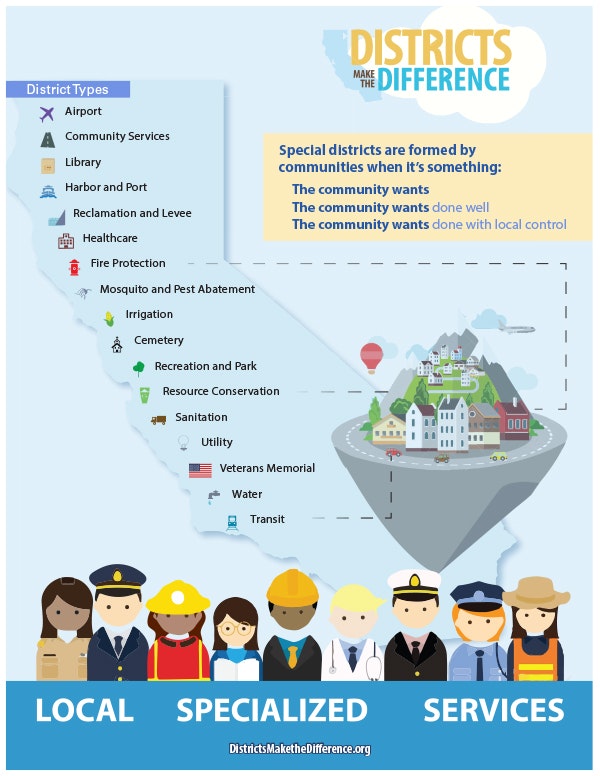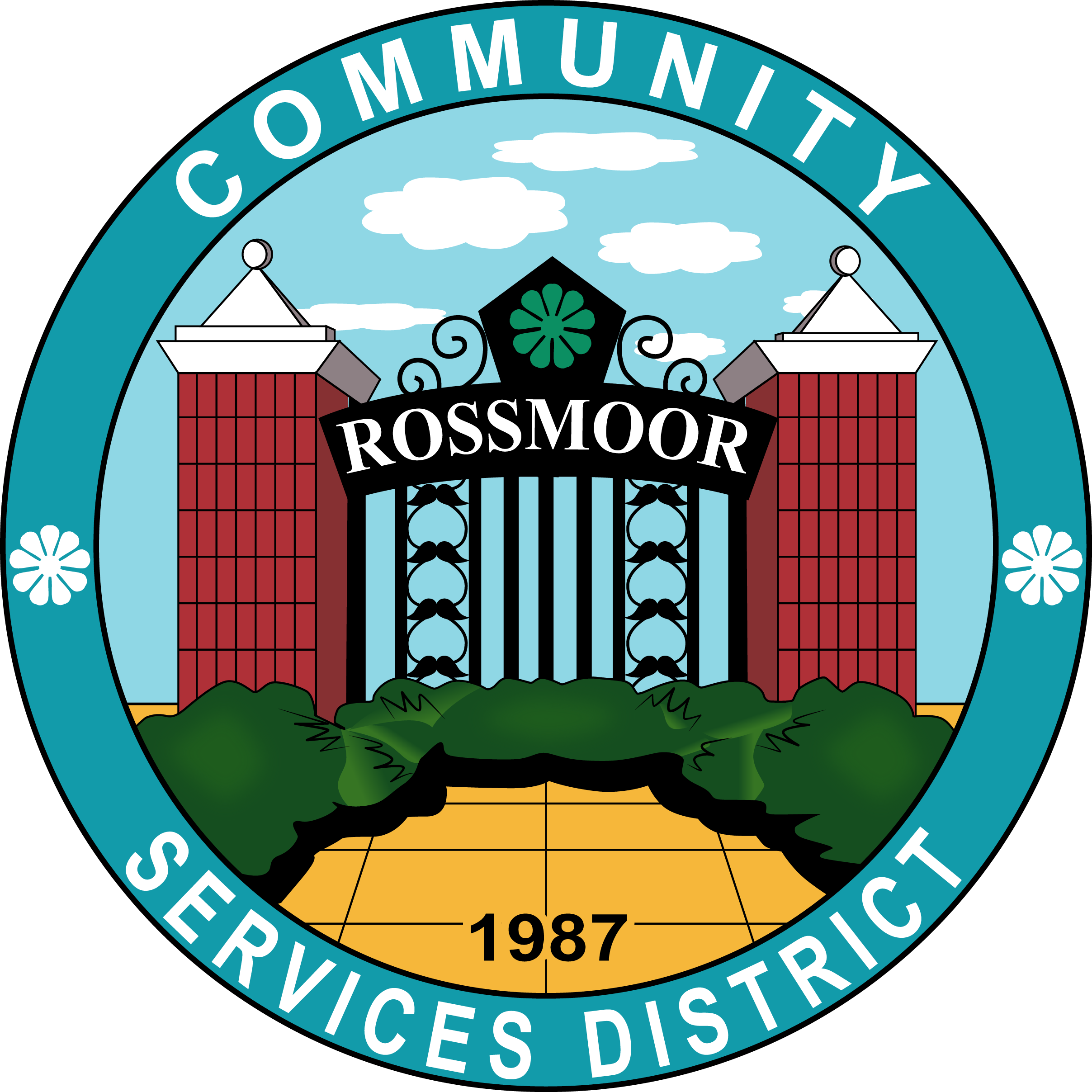Special District
What Is A Special District?

What makes Special Districts so special...

Special districts can be distinguished by their four common characteristics:
1. A form of government that is an independent public agency.
2. In most cases, governed by an elected board of directors.
3. Provides services and facilities.
4. Has defined boundaries.
Inadequate tax bases and competing demands for existing taxes make it hard for cities and counties to provide all the services their citizens desire. When residents or landowners want new services or higher levels of existing services, they can form a district to pay for them. Fire districts, irrigation districts, and pest abatement districts exist today because taxpayers were willing to pay for public services they wanted. Special districts localize the costs and benefits of public services. Special districts allow local citizens to obtain the services they want at a price they are willing to pay. So, what’s so special about special districts? Focused services. Special districts are a type of local government that delivers specific public services within defined boundaries. Special districts deliver highly diverse services including water, closed captioned television, mosquito abatement, and fire protection. Most special districts serve just a single purpose, such as sewage treatment. Others address a multiplicity of needs, as in the case of community service districts, which can offer up to 16 different services. Districts' service areas can range from a single city block to vast areas which cross city and county lines. For example, the Metropolitan Water District of Southern California serves nearly 17 million people in over 5,200 square miles of six counties, while County Service Area #2 in Los Angeles County serves only 25 acres. Special districts enjoy many of the same governing powers as other cities and counties. They can enter into contracts, employ workers, and acquire real property through purchase or eminent domain. They can also issue debt, impose taxes, levy assessments, and many charge fees for their services. Special districts, like other governments, can sue and be sued. They can also adopt a seal and alter it at will! Special districts have the corporate power and tax power but rarely the police power. The corporate power is the ability to "do things," like constructing public works projects such as dams and sewers. It's the power to deliver recreation programs and collect garbage. The tax power is the authority to raise money to pay for these projects and services.
What a Special District Is Not
Now that we understand what special districts are, let's examine what special districts are not.
- Special districts are not state government.
- Special districts are local agencies which provide public services to specific communities. Special districts are autonomous government entities, accountable only to the voters or landowners they serve. State government, however, oversees special districts in several ways. For example, special districts must submit annual financial reports to the State Controller. Districts must also follow the state laws pertaining to public meetings, bonded debt, record keeping, and elections.
- Special districts are not city or county government. Cities and counties are general purpose governments. Cities and counties perform a broad array of services to protect the health, safety, and welfare of all their citizens.
- Special districts are limited purpose local governments. Special districts provide only the services their residents desire. Certain types of special districts require that the city council or county supervisors serve as their governing boards. Nevertheless, special districts remain legally separate local entities.
- Special districts are not school districts. School districts exist to provide one service --- public education. Special districts provide a variety of public services, excluding education. In addition, school districts get most of their money from the state, whereas special districts rely primarily on local revenues.
- Special districts are not "Mello-Roos" districts or benefit assessment districts. California law allows cities, counties, school districts, and many special districts to establish Mello-Roos districts and benefit assessment districts to finance public works and public services. Mello-Roos districts and benefit assessment districts are solely financing mechanisms and do not deliver services. Special districts use these financing mechanisms to provide public services.
- Special districts are not redevelopment agencies. Cities and counties set up redevelopment agencies to eliminate blight by paying for public and private improvements and economic development. Special districts do not exist to eliminate blight. Special districts provide public services and infrastructure that help communities, but they are not in the business of direct economic development.
- Who’s in, who’s out? Most of the data on special districts in this report comes from the annual Special Districts Annual Reports produced by the State Controller’s Office. The total number of special districts included in this citizens guide (3,361) varies from the State Controller’s report (4,792) because they define special districts differently. The State Controller’s report has a very broad reach, including many organizations that aren’t really special districts. This guide omits districts that don’t share all four of the key characteristics: provides services, has boundaries, is a form of government, has a board. This citizens guide omits the 31 Air Pollution Control Districts because they are regulatory agencies not service districts. Similarly, nonprofit corporations don’t appear in our count because they are corporations not governments.
Memberships
The Rossmoor Community Services District is a member of the California Special District Association (CSDA) and the California Joint Powers Insurance Authority.
